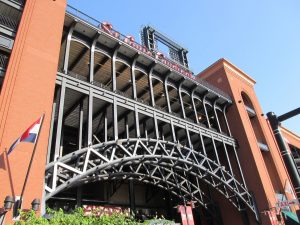Authors: Aaron Gott and Nick McNamara
Antitrust conspiracies, like most conspiracies, are typically carried out in secret and often actively concealed by their participants for many years. But the statute of limitations for antitrust claims is only four years. So what happens if you discover that you were harmed by an antitrust conspiracy years after the fact? The answer could depend on which of the U.S. Court of Appeals has jurisdiction in your case.
Imagine you’re a retail grocer in the business of selling farm-fresh produce. Your store sources all of its carrots from local farms, many of which belong to a trade association of carrot growers (these carrot growers weren’t organized as a farm cooperative, which could provide them with a limited antitrust exemption you can read about here). Since you opened your grocery store several years ago, the price of carrots sold by these farms has been stable and reasonable. Then, all of a sudden, you notice that the price of locally farmed carrots has increased by 10%—overnight and for no apparent reason. Soon after you learn of the price hike, you receive an explanatory letter from the farm that sold the store its most recent batch of carrots. The letter apologizes for the increased price, which it attributes to a virus which has been harming local carrot crops. According to the letter, the farm hired plant biologists who confirmed the presence of the virus in the area.
You have never heard of a virus affecting carrots, but you have little reason to doubt the explanation provided by the farm. You review the scientific documentation attached to the letter and read up about the virus on Wikipedia; it turns out it is indeed a real virus that does affect carrots. You also hear that other grocers in the area have also received similar letters from other local carrot growers (but you didn’t talk to them directly because your antitrust compliance program forbids it). On top of it all, you have always had very cordial business relations with the sales representatives of the carrot farms. You decide to eat the lost profits, knowing that discontinuing the sale of locally farmed carrots would disappoint many loyal customers.
Five years later, you are tipped off by a former employee of one of the local carrot growers that the presence of the virus in the area was a complete fabrication, as was the supporting documentation submitted by the purported scientists. The ex-employee further informs you that the plan was hatched by the carrot growers’ trade association. Feeling cheated, you search the web for the antitrust statute of limitations, which you learn is four years.
But the good news is that the statute of limitations is not necessarily fatal to a claim involving an antitrust conspiracy. In fact, courts have long recognized that the distinguishing feature of illegal conspiracies is that they are almost always hidden from public view by design—and as a result, they often harm unwitting victims unaware they are being harmed. And, in some cases, courts have applied the equitable doctrine of fraudulent concealment to “toll” the statute of limitations in cases where the statute of limitations otherwise would have barred the claim.
You may have heard of a similar doctrine called the “discovery rule.” Under the discovery rule, a claim does not accrue—and the statute of limitations does not begin to run—until a reasonably diligent plaintiff discovers or should have discovered its injury. But there is a key difference: the discovery rule is a legal doctrine governing the point at which a statute of limitations begins to run, while tolling for fraudulent concealment is an equitable doctrine that assumes that the claim has already accrued and the statute of limitations has already run. In practice, the two doctrines have a nearly identical effect, so an antitrust plaintiff can typically plead both in the alternative. Both doctrines also have a due diligence requirement, so you can’t rely on them if, under the circumstances, a reasonable person would have investigated potential claims (for example, an unexplained, sudden price hike could give rise to a duty to investigate).
 The Antitrust Attorney Blog
The Antitrust Attorney Blog












